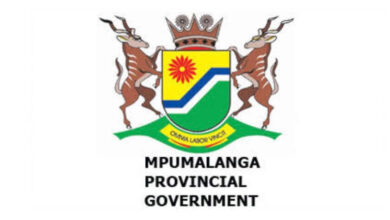Avoid Over Indebtedness – Borrow Wisely Cautions The Credit Regulator

Although interest rates have come down over the past few years, an alarming number of consumers are still battling to pay off their debts. The National Credit Regulator (NCR) warns that of 19, 10 million credit-active consumers, 8, 83 million consumers had impaired records as at the end of September 2011. These are consumers that are three or more payments or months in arrears on their debt repayments.
 “Before consumers sign credit agreements, they need to understand the cost of credit and the terms and conditions of different credit agreements,” says Manager of Statistics at the NCR, Rajeen Devpruth.
“Before consumers sign credit agreements, they need to understand the cost of credit and the terms and conditions of different credit agreements,” says Manager of Statistics at the NCR, Rajeen Devpruth.
He says consumers should take into account all debt, including store and credit cards as well as personal loans and other commitments. “Plan to pay off as much debt as possible before taking on more credit,” says Devpruth. “Most importantly, stick to and honour your credit agreement and repayments.”
The National Credit Act (NCA) aims to regulate the credit industry, curb reckless lending and ensure that consumers are protected from harmful lending business practices. But Devpruth says consumers should also take responsibility for the amount of debt they take on. “After taking all your debt into account, including your home loan, car repayments, store and credit cards, make sure you can really afford to take on extra debt,” he adds.
According to the NCA, before credit providers extend credit to consumers, they are required to conduct an affordability assessment to assess:
• the consumer’s general understanding and appreciation of the risks and costs of the proposed credit;
• the rights and obligations of a consumer under the credit agreement;
• debt repayment history as a consumer under credit agreements;
• the consumer’s existing financial means, prospects and obligations.
“Under the National Credit Act, it is your right as a consumer to be given a pre-agreement statement and quotation when seeking credit”, says Devpruth. “These will outline the terms and conditions of the proposed agreement and all costs involved such as cost of credit, interest, service fees, initiation fees, credit insurance if there is any, deposit required if there is, number of instalments, date of first instalment, date of last instalment etc”.
“This means that you will know what is expected of you prior to signing the credit agreement,” explains Devpruth. “You should be aware of the cost of credit and the terms and conditions of the agreement before signing the actual credit agreement so there shouldn’t be any surprises in future. If there is anything you don’t understand, seek assistance before you commit yourself.”
“Never sign a blank credit agreement as you won’t have control over other information added after you sign”, advises Devpruth.
Devpruth warns consumers to investigate what interest rates will be charged, but also all other charges that will be added. For example, when taking out an unsecured credit which consists mainly of personal loans, the credit provider can charge maximum interest of up to 32.1%. “However, as a consumer you can negotiate the interest when you get the pre-agreement statement and quotation. You can use these to shop around for better deals and remember to only borrow from a reputable credit provider”, advises Devpruth.
Tips for borrowing wisely:
– Borrow as little money as possible. Borrowing to fund your children’s education or a home loan can be a good thing, but borrowing for consumables such as to pay off other debt or to fund luxuries such as holidays or designer clothing can condemn you to a lifetime of debt. Only borrow for what you really need. Plan the repayments before you apply for a credit card, clothing card, overdraft, personal loan or any form of credit. Also take into consideration the interest and other charges as well as how this will affect your ability to save. Avoid paying over too many months as it will cost you more in the end.
– Credit insurance. If there is, familiarise yourself with the terms of the insurance to avoid surprises when you most need the insurance.
– Be honest. Make sure that you honestly disclose all the information required by the credit provider. Dishonesty may cause you to lose the protection offered by the National Credit Act.
– Create a monthly budget and stick to it. Work out how much income your family earns and what your total expenses are each month. Will you be able to pay for your new debt once you’ve covered all your expenses? You should also plan for unexpected costs such as if one of your family members is retrenched. Always keep receipts of your payments, as you might need these in the future.
– Start saving consistently. Put aside at least 15% of your income every month in a safe investment. Save for your retirement as well.
– Pay your debts on time. Paying late will adversely affect your credit rating and possibly your ability to take out credit in the future. If you think you cannot meet your monthly instalments, call your credit provider immediately and try to re-arrange payments. Do not wait until you skip payments.
– Prioritise your home loan. You don’t want to lose your home.
– Check your credit report regularly. This way you’ll be able to identify any errors and correct them. Under the NCA a credit bureau must provide you with one free copy of your credit report each year from each of the eleven registered credit bureaus. Additional copies cost R20 excluding VAT each.
Devpruth also advises that consumers should aim to pay off their debt and build up savings over the longer term.
For additional information or to get hold of a registered debt counsellor, please contact the NCR on 0860 627 627 or log onto www.ncr.org.za for assistance.




